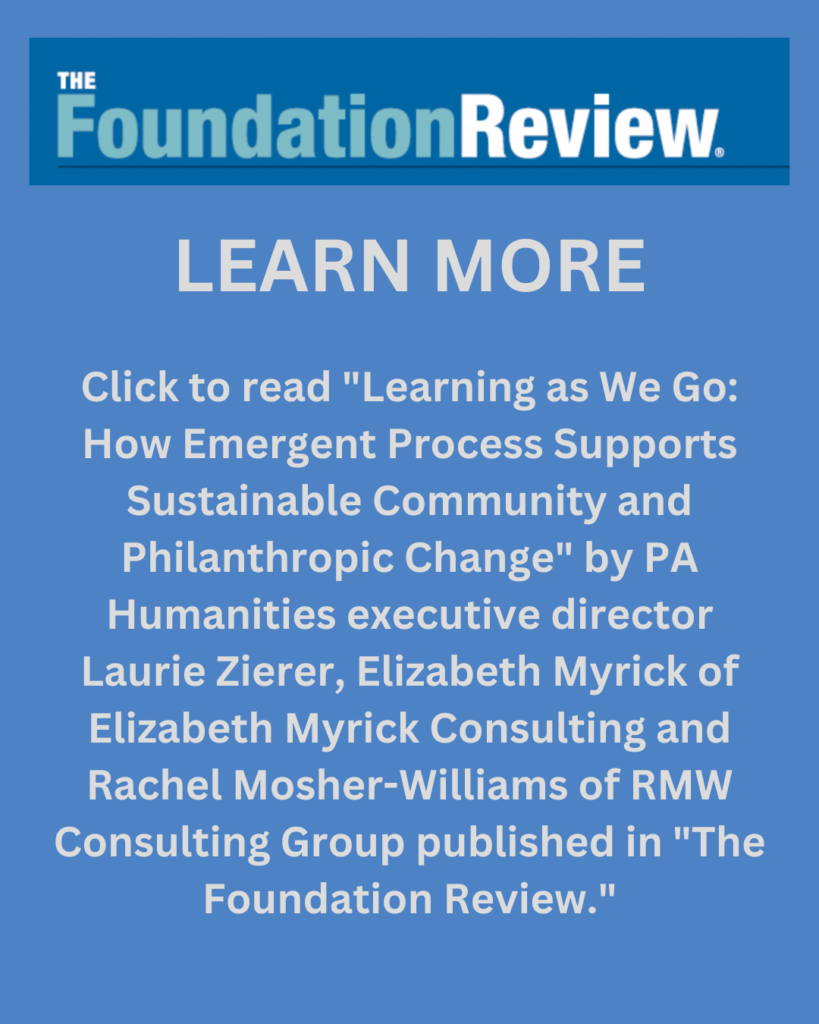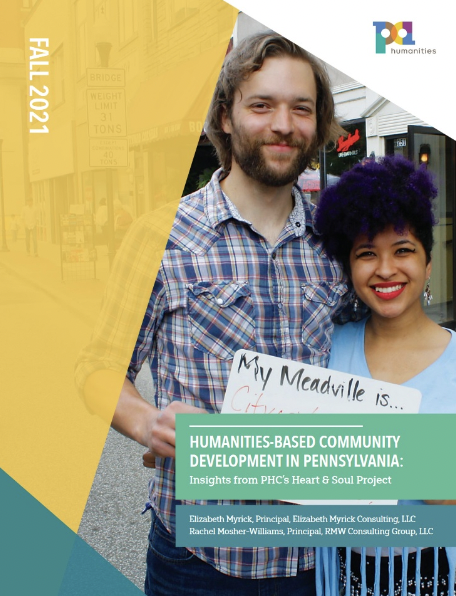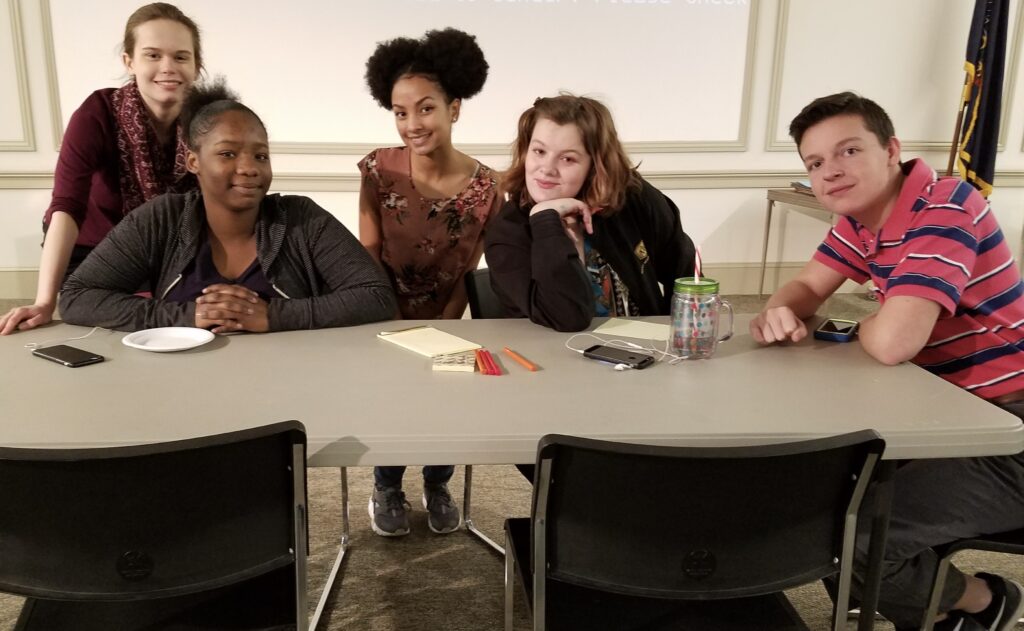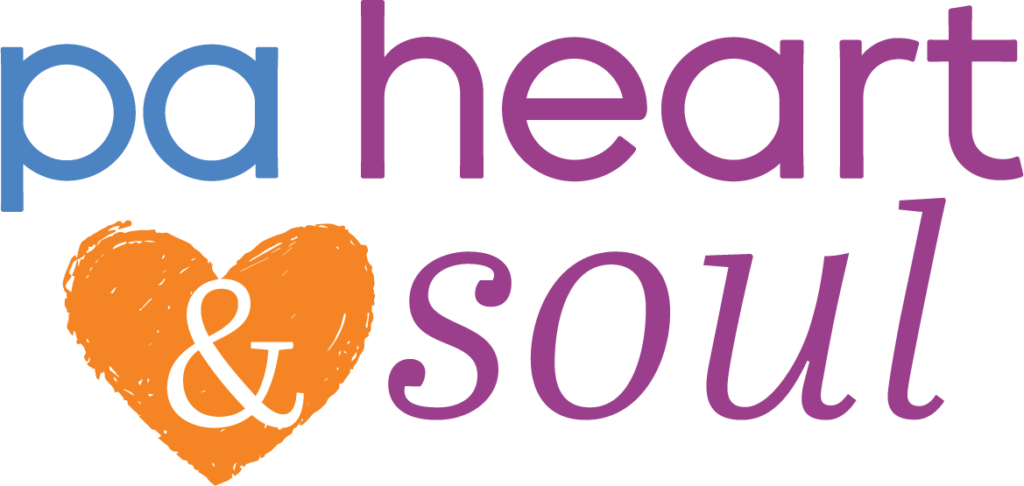By Karen Price
At PA Humanities, failure is nothing to be feared.
That may sound counterintuitive, but for PA Humanities, the days of approaching community-based programs with preconceived notions of how things are going to work are over. PA Heart & Soul ushered in an emergent way of working with communities in which everyone – funders and grantees alike – learns in real time and recognizes if it’s time to let go, change direction or try something new. It’s a strategy that centers around intentional pursuit of shared values and goals, relationships and a dynamic mindset that allows for adaptation.

“And those are the moments that you are going to learn the most, when you are able to trust in the moment in real time, pause, and say, “Ooh, wait a minute. What are we learning here?” PA Humanities executive director Laurie Zierer said. “Not waiting for the project to be done to reflect on it, but to do it in the moment.”
PA Humanities launched Heart & Soul in 2016 with three pilot communities: Meadville, Carlisle and Williamsport. The community building program is based on the Orton Family Foundation’s Heart & Soul program, and uses storygathering as the basis to form value statements that can then inform residents, local government and others in planning and development.
Three years into the process, PA Humanities contacted researchers Elizabeth Myrick and Rachel Mosher-Williams to learn more about how residents were experiencing the humanities and its impact on their lives and communities. Through that research came the emphasis on emergent learning and emergent strategy, concepts that are rooted in the writings of adrienne maree brown. Often, what’s learned from a project happens in retrospect once everything is wrapped up and done. It’s an exercise in looking back. Emergent learning and strategy practices evaluation in an ongoing, real-time manner.
“Trusting the process, trusting the people involved and allowing the people involved to have agency are things that PA Humanities learned it could do, and learned that it could relate to communities in that way,” Mosher-Williams said. “And that’s also a major takeaway that we feel philanthropy itself really needs to hear. There’s more understanding about how these concepts connect to equity at a very basic level. Without trust, power dynamics can never be right. They can never be truly advancing equality, belonging and equity in a community. And so the connection between emergence and emergent strategy and learning and equity are very, very exciting for me, and I think for us in this process.”

Safronia Perry is now a board member with PA Humanities but she was introduced to the organization through Greater Carlisle’s PA Heart & Soul work. The executive director of Hope Station became a member of the leadership team, and one of the pieces of Heart & Soul was training a youth cohort from Hope Station to interview Greater Carlisle residents and collect their stories. One day after a training session, Perry heard the students talking among themselves about the discrimination they were dealing with at school.
That led to an idea to host a community town hall in which students would record their stories about treatment at the high school to video, and they’d invite parents, community members, and school board and staff to come to the event and hear what the students were saying.
“It sounded really good, we were going to do it,” Perry said. “Some of the kids went and did their recordings, it was great, we were ready for it, and then we got pushback from the school.”
Rather than give up on the town hall or go down what could have been a contentious path with the school district, they shifted to a Heart & Soul summit that was focused on being a welcoming community.
“And instead of showing the videos, we had the students come and sit at tables with members from the school district, and they had conversations,” Perry said. “The parents were there as well. It turned out to be really good. We had someone who facilitated it and it turned into a great conversation. We had to reimagine what that looked like, but it worked. The school didn’t feel like we were attacking them, and the students got to express their concerns to the administrators, staff and school board.”

Nearby Mt. Holly Springs came on board with PA Heart & Soul after Carlisle, just before the COVID-19 pandemic hit. That in itself required a major shift in how the process usually works. Without the ability to gather in person to plan let alone go into the community to talk to people, things were in flux with the program itself.
“So we just did our own thing,” said Jim Burgess, a member of the leadership team. “We did some strategic planning and came up with a mission and vision and values and then the pandemic hit and we couldn’t do anything, anyway, so we used Zoom to go down some rabbit holes that were really fun and interesting for our group and helped establish us in the community. And at the end of the day, that really paved the way for some fruitful progress now.”
Those “rabbit hole” investigations turned into a Zoom series they called “Remarkable Women of Mt. Holly Springs,” which was a hit in the community, and when nearby Dillsburg started the PA Heart & Soul process, Mt. Holly Springs came back on board themselves.
“In both arenas for Heart & Soul, I push for opportunities and sometimes it takes you down the path that maybe isn’t as perfectly aligned with the process of Heart & Soul, but it leads to an oasis where it’s fruitful to re-engage with the process of Heart & Soul,” he said.
Emergent strategy requires a departure from the traditional different relationship between funder and grantee, and that isn’t always easy for either one. Part two of the article explores that further.


![[color – dark bg] PA SHARP FINAL FILES DB 72dpi [color - dark bg] PA SHARP FINAL FILES DB 72dpi](https://pahumanities.org/uploads/files/elementor/thumbs/color-dark-bg-PA-SHARP-FINAL-FILES-DB-72dpi-phgl7aimtfdpzt2rscvl43ksfv3asbbls19lsvuacw.jpg)


